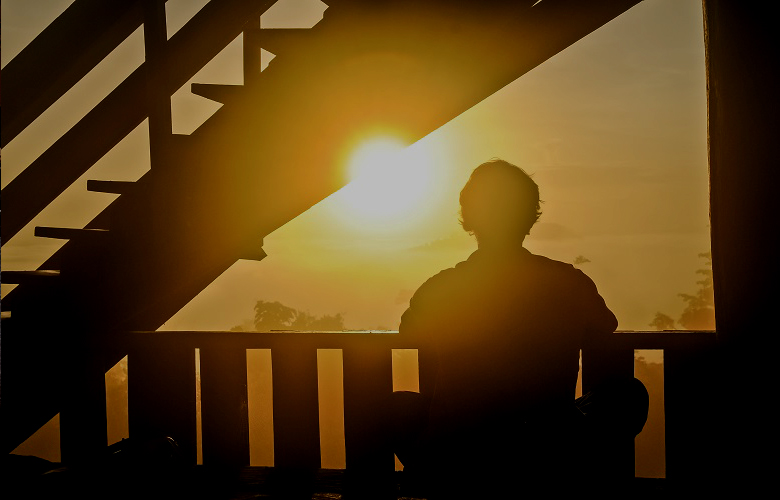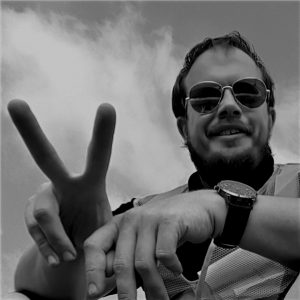
Greetings from the Middle East where in the past week we’ve had Eid – the end of Ramadan celebration.
I decided this year, being my first in the Middle East, to adopt a tone of part intrigue, part education and part solidarity to try and learn as much as I could about Islam and the holy month of Ramadan.
Ramadan occurs annually based on the lunar calendar, sighted in Mecca. It’s a holy month for Muslims who use it to take stock of life including prayer, deep introspection as well as charity, looking after the less fortunate and spending time with family.
Being in the UAE (United Arab Emirates), Ramadan takes hold across the city as the obligatory fasting occurs. From sun up to sun down or from the morning prayer (Imsak) to the evening prayer (Maghrib), you cannot eat or drink. Absolutely nothing. That includes water. For a first-timer, this was challenging. With temperatures reaching 45+ degrees outside, the thought of water is constant – not being able to drink it… challenging to say the least.
It’s often said by many philosophers that the route to true introspection and true humility is through suffering so the fasting is just that – not simply a way to purify the body physically but also a way to take stock of what’s important and feel empathy for those who perhaps simply don’t have what you do.
Working in a city like Dubai, I couldn’t help but think of the many labourers and workers across the city in the sweltering conditions, many from Pakistan (a Muslim Nation) who were doing it tough across the land.
Ramadan hours do make the fasting slightly more bearable where the whole city changes its operations to 9 am – 3 pm. Fasting is also made more palatable by the almost total acceptance. Restaurants are closed or covered with screens, people are not really allowed to eat in public. This is done as a mark of respect but also to help avoid the temptation of breaking the fast.
Of course, once Maghrib happens, it’s Iftar time and it’s the highlight of the day. Iftar, breaking the fast, is the time when one can eat, drink and socialise with family and friends. Everyone in town seems to run large Iftar banquets, often in outdoor tents with free flowing food and drinks to celebrate the breaking of the fast. These often run late into the night until all at once, it’s Suhur time (the last meal before the fast) and then it’s time to fast again.
The times change depending on your geographical location in the world – for Dubai, on average, it was Imsak at 4 am and Maghrib at 7.15 pm.
I found myself actually quite enjoying Ramadan. The early morning 3 am wake up is actually something I want to build into daily life, a wonderful time for introspection, meditation or simply enjoying the world before the masses are awake. The lack of food and water, while initially challenging, soon became easier but not so easy as to ignore the meaning, which was good. A challenge throughout is a good thing.
The Zakat is another wonderful component of Ramadan, the requirement to give to the less fortunate. For practising Muslims, I believe there’s an actual formula based on earnings and such (around 2%), but simply the compulsion to give and help the less fortunate is a good thing.
Beyond that, keeping in the theme of health, betterment and self-introspection, it’s an alcohol-free time (alcohol and pork are Harram/ forbidden). You think this is difficult, it’s really not. Lastly, it’s encouraged to purge bad thoughts, swear words, negative thinking – all of which goes along with bettering yourself.
For those wanting to practise Ramadan, I would say go for it. There’s a tonne of resources across the internet to get you started and answer all the questions you may have.
I was concerned initially it would be offensive to try this when it’s not my religion, but that’s not the case. Now, I went in with the right intentions and as many of my friends and colleagues were fasting, the solidarity and interest were often met with a warm reaction.
There are exceptions to Ramadan. If you’re older, sick or for some reason unable to take part then you’re exempt. While the Islamic faith considers Ramadan one of the five pillars of Islam (alongside travelling to Mecca at least once, the Zakat, Daily Prayer and the learning of texts), it’s realistic and if you can’t undertake it without harming yourself, you simply practise by giving back to the community or the less fortunate as much as you can.
It’s their holy month so as we said above, not eating or drinking in public is a good start. Watch your language, don’t drive around with loud music… simply put, be respectful and you’ll be fine. There is a range of how strict Ramadan is. Obviously, in Dubai, it’s more liberal and you can go about your life as those taking Ramadan will go about theirs but if you were in a more staunch Islamic nation such as Saudi Arabia, your results may vary.
I had the pleasure of spending Ramadan in a number of countries – the UAE (Islamic but globally progressive), Kuwait (conservative Islamic), Djibouti (relaxed Islamic), Kuala Lumpur (similar to UAE) and Australia (my home). These ranged from the mild and accepting through to the staunch and ghost like (simply put, no one was out on the streets or around) through to the minority where I was the only one practising (quite an intriguing feeling to be practicing an Islamic Custom as a white male in Australia) but overall, the powerful feeling of community stayed with me – you felt connected to millions of people around the world taking part in the same practice.
Would I recommend it? That’s not really for me to say – that’s up to you, but for me I found a deeply personal journey. I would say that for me it was a fascinating look into Islamic life, a show of solidarity to my friends and colleagues but also a time in which I gained some benefit through that introspection and looking into how I live, not to mention the charity and good will imperatives which can never be reminded of people too often.
6 Ways To Avoid Procrastination: Just Get It Done!


Hailing from his hometown of Melbourne, Tom Warneke is a Technical & Production Manager with experience throughout Australia, Asia and the Middle East. He has worked on many formats ranging from theatre and musicals through to festivals, live music, and major events and mega shows. While his experience stems from Lighting, he has a background in emergency management and works often in helping technical teams manage change. Tom is a trained EMT and has an MBA as well as a Bachelor of Arts in Counter-Terrorism. When not running production on shows, he enjoys finding new music, finding the best unknown restaurants and bars, travelling and exploring new places, and living life in search of great stories and experiences. Tom is currently based in Dubai as an expat, attempting to make sense of a fascinating part of the world.
Read Full Profile© 2021 TheatreArtLife. All rights reserved.

Thank you so much for reading, but you have now reached your free article limit for this month.
Our contributors are currently writing more articles for you to enjoy.
To keep reading, all you have to do is become a subscriber and then you can read unlimited articles anytime.
Your investment will help us continue to ignite connections across the globe in live entertainment and build this community for industry professionals.